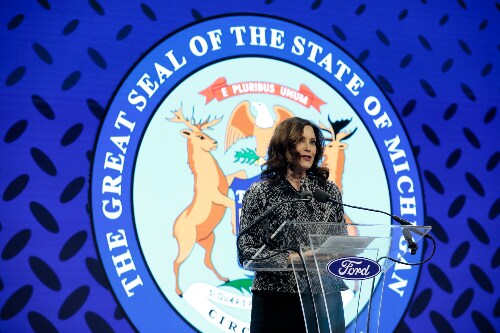
Last week, Ford announced plans for a new battery plant in the town of Marshall, Michigan. Slated to start production in 2026, the plant will become the country’s first automaker-backed LFP battery plant. Ford has already made an investment of $3.5 billion in the project, which will be named BlueOval Battery Park Michigan.
“We are committed to leading the electric vehicle revolution in America, and that means investing in the technology and jobs that will keep us on the cutting edge of this global transformation in our industry,” said Bill Ford, Ford executive chair. “I am also proud that we chose our home state of Michigan for this critical battery production hub.”
BlueOval Battery Park Michigan will be creating both LFP (or lithium ion phosphate) batteries and NCM (nickel cobalt manganese) batteries. NCM batteries are the kind that currently power Ford EVs, but the addition of the second variety of batteries will offer a lot of benefits to Ford customers. While NCM batteries have more energy and power to offer and perform better in colder climates, LFP batteries are made of more readily available materials, and therefore are cheaper and easier to produce, and they often have a better lifespan than their NCM counterparts. The availability of these LFP batteries will help to make electric vehicles more accessible to Ford customers, and they are already expected to be available on the 2023 Mustang Mach-E and the 2024 F-150 Lightning, helping to increase production capacity and reduce customer wait times.
“Ford’s electric vehicle lineup has generated huge demand. To get as many Ford EVs to customers as possible, we’re the first automaker to commit to build both NCM and LFP batteries in the United States,” said Jim Farley, Ford president and CEO. “We’re delivering on our commitments as we scale LFP and NCM batteries and thousands, and soon millions, of customers will begin to reap the benefits of Ford EVs with cutting-edge, durable battery technologies that are growing more affordable over time.”
BlueOval Battery Park Michigan will begin production in 2026, and will create 2,500 new jobs with the potential for more in the future. As the plant becomes operational, LFP batteries will begin to appear in more and more Ford electric vehicles, helping to keep costs down and increase how customizable these vehicles can be.
If you’re interested in staying up to date on all of the latest Ford news, continue reading our blog here at Haldeman Ford East Windsor!